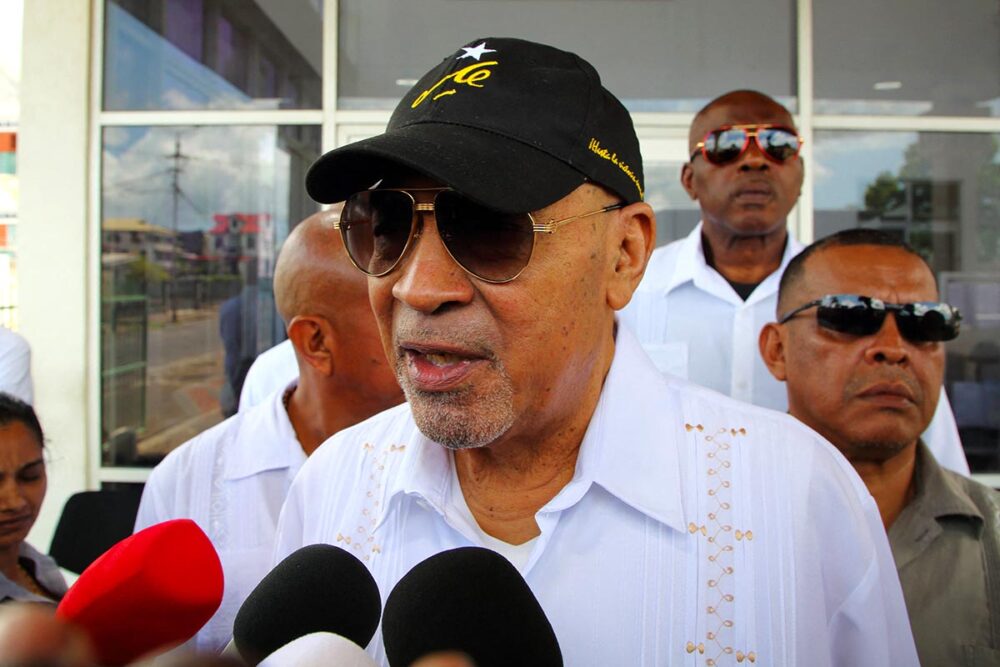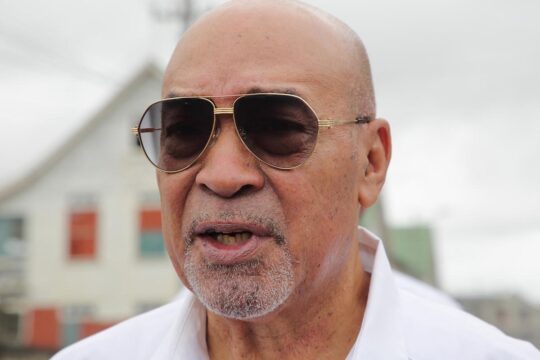Suriname's highest court on Wednesday upheld a 20-year prison sentence for ex-president Desi Bouterse, who lost an appeal against his conviction for the 1982 killings of political opponents.
The verdict puts an end to the legal saga surrounding the onetime strongman of the small Dutch-speaking South American nation, and fears of unrest proved unfounded.
Bouterse was not present for the hearing in the capital Paramaribo, which took place with a large presence of security forces outside the court.
In 2019, Bouterse was convicted over the execution of 15 people -- lawyers, journalists, businessmen and military personnel -- in December 1982, two years after he took power following a coup.
Bouterse, 78, appealed the verdict and has remained free awaiting the outcome of the case.
Dinesh Sewratan, who presided over the three-member tribunal, said Bouterse had "never expressed remorse and sincere regret."
"It doesn't matter if he pulled the trigger or not," he said, adding Bouterse "had enough opportunity and time" to reconsider the order to execute the opponents, rejecting the former leader's argument that the killings were not premeditated.
According to Suriname law, Bouterse now has eight days to write the country's president to ask for clemency. His legal team also suggested they might ask the Inter-American Court of Human Rights to intervene.
'Moment of healing'
Police closed roads in and around the courthouse ahead of the ruling, but there were no incidents reported.
The government said there were no immediate plans to take Bouterse into custody and asked his supporters to respect the court's decision.
"The government sees this as an important moment of healing," it said in a statement.
"It took 41 years, but the long arm of the law has finally caught up to Desi Bouterse," said Reed Brody with the International Commission of Jurists, a human rights organization that has been following Bouterse's case.
"Today's decision is a victory for the families of Bouterse's victims, who never gave up, and for all those around the world seeking to bring powerful abusers to justice," Brody said in the courtroom, hailing the judges for "their fortitude and their independence."
Henk Kamperveen, whose father Andre was one of the victims, said: "We waited too long. We're not going to celebrate, but instead we will try to turn the page."
Lilian Gonsalves, whose husband Kenneth was murdered, said she was "proud of the judicial system."
'I'm ready for it'
The ruling comes as tensions are already high in the small country -- wedged between Guyana and French Guyana -- which has seen protests against soaring inflation and austerity measures.
"The police are on alert, backed up by other security forces," Justice Minister Kenneth Amoski said in a statement.
In July, Bouterse -- who remains very popular, notably with the country's poor and working classes -- said he would respect the ruling.
"Whatever it will be, I'm ready for it," he said.
Last Saturday, at a party rally, Bouterse called the proceedings "political" but urged his backers to remain "civilized" and wait until elections set for 2025 to make themselves heard.
Bouterse staged a coup on February 25, 1980. Known for his eloquence, he initially acted as spokesman but soon took over the military regime, promoting himself to commander-in-chief and de facto ruler.
He has denied involvement in the 1982 killings, saying the victims had been held for plotting a counter-coup with the help of the CIA, and had been shot while trying to escape.
Bouterse stepped down in 1987 but returned to power in 1990 through a bloodless coup by making a simple phone call to the then-president.
In 1999, a court in the Netherlands, Suriname's former colonial ruler, sentenced Bouterse to 11 years in prison in absentia for cocaine smuggling, another charge he denies. He was later elected and served as president of Suriname from 2010 until 2020, protecting him from extradition.




